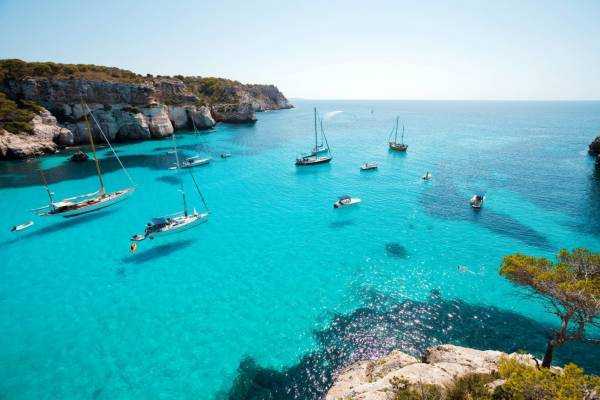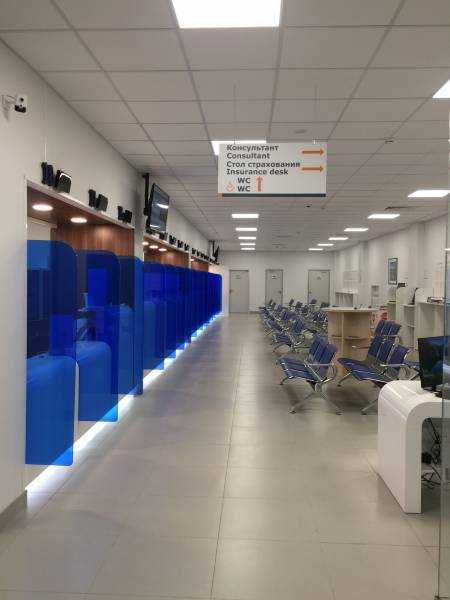On April 6, the First National Congress of Travelers and Air Passengers was held in the Public Chamber of the Russian Federation. The organizers of the Congress, with the support of the Public Chamber of the Russian Federation, were the Public Council under the Federal Agency for Tourism, the Russian National Association of Air Passengers and the All-Russian Association of Tourists. The general information partner of the Congress was the Argumenty i Fakty Publishing Holding.

The aim of the event was to form a national strategic concept for interaction between consumers of aviation and tourism services with representatives of industry businesses and government regulators to meet current public demands.
Today's trend: tourism is growing in Russia
Oleg Safonov, head of the Federal Agency for Tourism (Rostourism), noted the growth trend of tourism in Russia: “The domestic tourist flow has grown by 75 percent in the last 4 years alone. The entry of foreign citizens has increased by more than 100 percent in the last 15 years. And if we compare the situation with the early 2000s, Russian residents have twice as often started to go on holiday abroad, which has provoked a natural increase in demand for air travel. The overwhelming majority of tourism products sold are based on flights.” The head of the department emphasized the inextricable link between tourism and the aviation industry: in 2017, a record figure for the volume of air travel in the country was recorded - more than 105 million people, thereby an increase in air travel by 18 percent compared to the results of 2016. “As a result, we are seeing the active development of the air route network. This is a serious factor that favors the implementation of the Russian President’s directive regarding the establishment of Russia as a key logistics and transport hub on the planet,” said Oleg Safonov.
"Tourism is no longer just an industry, it is the hospitality industry," Oleg Safonov reminded. "It is important that this leads to the development of small and medium-sized businesses in the regions, increasing budget revenues at all levels. But it is equally important that tourism is a powerful part of ideology. As you remember, our president said that patriotism is an ideology for us, but one cannot love, respect and know one's country if a person has not visited its corners. And this cannot be done without using the capabilities of air transport." In this regard, the head of Rostourism noted the importance of working together with colleagues from the transport industry. Oleg Safonov congratulated the aviation industry on the 95th anniversary of civil aviation - this date is celebrated in 2018, wishing them further prosperity and success in their professional activities and expressing hope that flights to the country's regions will become more and more widespread. As the head of Rostourism noted, active measures are already being taken to increase the number of destinations within the country, including to Crimea: in the upcoming summer season, the number of destinations has been increased to 67, including an increase in tourist flow to Crimea this year. "We believe that this increase will be significant. This is also connected with the upcoming opening of the automobile bridge to Crimea," Oleg Safonov noted.
“Our task is to ensure that every tourist uses air transport services, and the transport must meet the requirements of quality and comfort,” he noted, for his part, Alexander Neradko, head of the Federal Air Transport Agency. The expert recalled that in 1990, air transport in Russia carried 94.3 million people, and this was a record figure, but then a decline began, the figure dropped to 21.5 million people. "However, since 2000, a revival of civil aviation began. And in 2017, we carried 105 million people. At the same time, in 2017, more than 186 million people used the services of Russian airports, taking into account foreign flights."
How to support tourism development in Russia?
Of the 105 million passengers transported by Rosaviatsia last year, 30-35 percent were tourists. Is it possible to increase this figure? In terms of using air transport, notes Alexander Neradko, this requires developing regional aviation and airports: "It is important that more than half of the flights are carried out directly, bypassing Moscow. The biggest problem is the lack of regional aircraft." Neradko said that the Russian aviation industry has practically stopped producing aircraft. In particular, they have now started producing the Il-410 near Yekaterinburg, but this is not enough yet, the speaker emphasized. For now, Russia continues to purchase aircraft abroad. Oleg Safonov also noted that Moscow is currently our largest hub, but such hubs - large transport hubs - need to be created in other cities of Russia.
And most importantly, the head of Rostourism emphasized, measures are needed to increase the competitiveness of our tourism. Oleg Safonov cited Turkey as an example, which is actively increasing inbound tourism. Subsidies are working, for each plane, charter that arrives in Turkey, not long ago they paid 6 thousand dollars, now this is a subsidy of 9 thousand dollars. Turkey spends 120 million dollars annually on advertising tourism, and for each cruise tourist, Turkey pays the tour operator 40 dollars, the head of Rostourism cited the figures. "That is why tourism in Turkey is developing so actively. Turkey earns 38-40 billion dollars annually from tourism! And we are discussing support of 700 million rubles, and this proposal has not yet been approved. But it is important to do this. We are in a highly competitive global environment. They are fighting for our tourists, they are profitable. Tourists from Russia like to relax and spend money."
Oleg Safonov also believes that tourists need to be reoriented towards domestic travel, but without support this will be increasingly difficult to do.
“Only 7 regions of Russia have started to implement at least some programs to promote domestic tourism,” he complained, for his part, Ruslan Novikov, CEO of the Argumenty i Fakty publishing house. — This is Altai, Krasnodar Krai, Voronezh and Vladimir Oblasts, Irkutsk Oblast… Kuban has gone into gastrotourism, ecotourism. At the same time, Alaska allocates 50-70 million dollars a year to attract tourists. And it attracts much more than our Kamchatka. Alaska receives more than 3.5 billion dollars from tourism. And this is not infrastructure tourism, but ecotourism, which does not require major infrastructure development. And we could also use this, we have huge resources for ecotourism."
The idea of subsidizing tourism development was also supported Sergey Markov, Chairman of the Public Council under Rostourism. He noted that now prices and competition are the main instrument of development in the tourism sector. But if a good competitive environment has been created in Sochi, Moscow, and St. Petersburg, then in other cities of the country this is not so developed. "Rosaviatsia should also promote the creation of a competitive environment in each of the sustainable areas," Markov noted. At the same time, the head of the Public Council under Rostourism proposed the following model for using subsidies: first, launch and promote a competitive model using subsidies, and then the region will be able to independently develop tourism.
Igor Fomin, a member of the Federation Council of the Russian Federation, agrees with the subsidy mechanism: "Currently, subsidies from the state are less than 1 percent. The mechanism is good, but it needs to be expanded. Next year, Russian tour operators will receive support in the form of subsidies for the first time. We are talking about the amount of 1 billion rubles." The senator also noted that he supports all measures to reduce taxes.
The forum participants also agreed that it is worth supporting certain categories of the population in order to give citizens the opportunity to travel more. For example, Vladislav Grib, Chairman of the Congress Organizing Committee, Chairman of the Commission for Public Control and Interaction with Public Councils of the Public Chamber of the Russian Federation, is concerned that young people travel little: “We need to, perhaps, resolve this issue together with the Ministry of Education. Maybe introduce discounted travel packages. Young people should learn history and their country not from textbooks, but by visiting our cities: Altai, Baikal, our cities.” Vladislav Grib also suggested, for example, creating a kind of association of hostels so that schoolchildren could receive discounts on accommodation and thus motivate young people to travel around Russia. By the way, Vyacheslav Grib noted, “infrastructure is those little things that can spoil the whole picture”: the cultural orientation of our places of accommodation and the food industry are still poorly developed. “The World Cup will be a test for us this year,” the speaker believes. “In the meantime, Moscow lacks hostels and inexpensive hotels, cafes are sluggish, and at airports, large families overcome obstacles like marines.”
Nikolai Ivanovsky, Chairman of the Public Council under the Federal Air Transport Agency, agreed with his colleague, supporting the idea of subsidizing and developing youth and tent tourism: "Youth tourism will soon be the most popular and inexpensive. We, aviators, will also take part in this. There is a proposal to outline joint steps so that our domestic tourism develops, and at a rapid pace."
Russia may establish the position of ombudsman for the protection of tourists' rights
Dmitry Davydenko, Chairman of the All-Russian Association of Tourists, Deputy Chairman of the Public Council under the Federal Tourism Agency, proposed to amend the legislation in the issue of security threats. The expert recalled that a statement by the Ministry of Foreign Affairs or Rospotrebnadzor is automatically grounds for declaring an existing security threat. But this is not always convenient for consumers and tourists. Last year, Dmitry Davydenko recalled, there was a problem - a security threat was declared in Turkey, Rospotrebnadzor and Rostourism did not recommend flying there. Then everything was resolved, tourists went to Turkey again. However, for now, the "place of stay of a citizen" is the entire resort. Changes must be made, suggests Davydenko, so that the hotel is also considered the place of stay of a tourist. "That is, if the court has established the fact of violation of the tourist's rights in a specific hotel, then why can't Rostourism and Rospotrebnadzor declare a security threat in this specific hotel? This proposal is aimed at protecting the rights of tourists from specific violations, so that problems are not created for tourists and the tourism business in a specific country. If two specific hotels behave badly, then travel to these hotels could be banned, but not to all of Turkey,” suggests Dmitry Davydenko.
Igor Fomin, for his part, said that there are other legislative ideas for the development of tourism in Russia. In the near future, Igor Fomin assured, a law will be approved that will introduce non-refundable prices in rail transport. "We have also prepared a bill that would introduce changes to aviation regulations. We are waiting for a positive conclusion from the government on it. There is a discussion about the rights of passengers, for example, about the level of responsibility of the carrier to the air passenger, in particular, for flight delays. Now it is 25 rubles per hour, this is not quite an adequate measure today," said Igor Fomin. The speaker also noted that it is time to legislatively change the interaction between tour operators and air carriers: in particular, it is not necessary to involve officials every time to resolve problems, businesses should also get involved in this work.
Other legislative changes that are vitally needed by the Russian tourism industry were also actively discussed at the Congress. In particular, the idea of introducing the position of ombudsman for the protection of tourists' rights in Russia. The head of Rostourism, Oleg Safonov, agreed that this proposal was discussed several years ago and is relevant: "We support this idea, it would be an effective mechanism for protecting the rights of tourists both in our country and abroad."
Dmitry Davydenko also supported this proposal, believing that Russia has long needed an ombudsman for tourism and aviation: "Any large European country that is developing tourism has such an institution. An ombudsman, and under him several more accredited companies that deal with disputes between consumers and representatives of the tourism business, and some kind of arbitration court. The presence of such mechanisms will, firstly, greatly relieve the courts, and secondly, reduce the time that tourists and passengers spend on protecting their rights. This will also significantly reduce the costs that the country spends. We can try how this will work here."
Source: trn-news.ru













